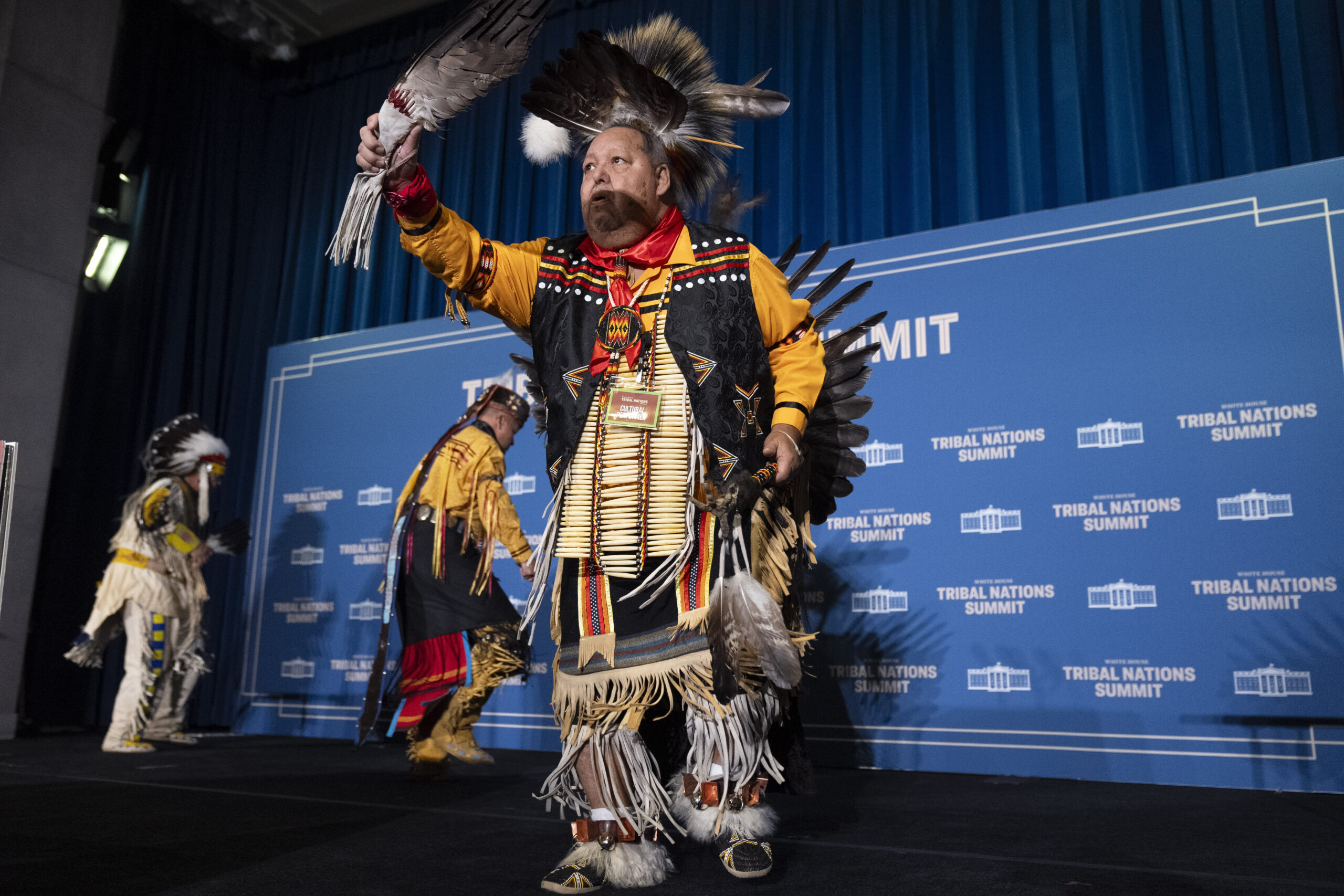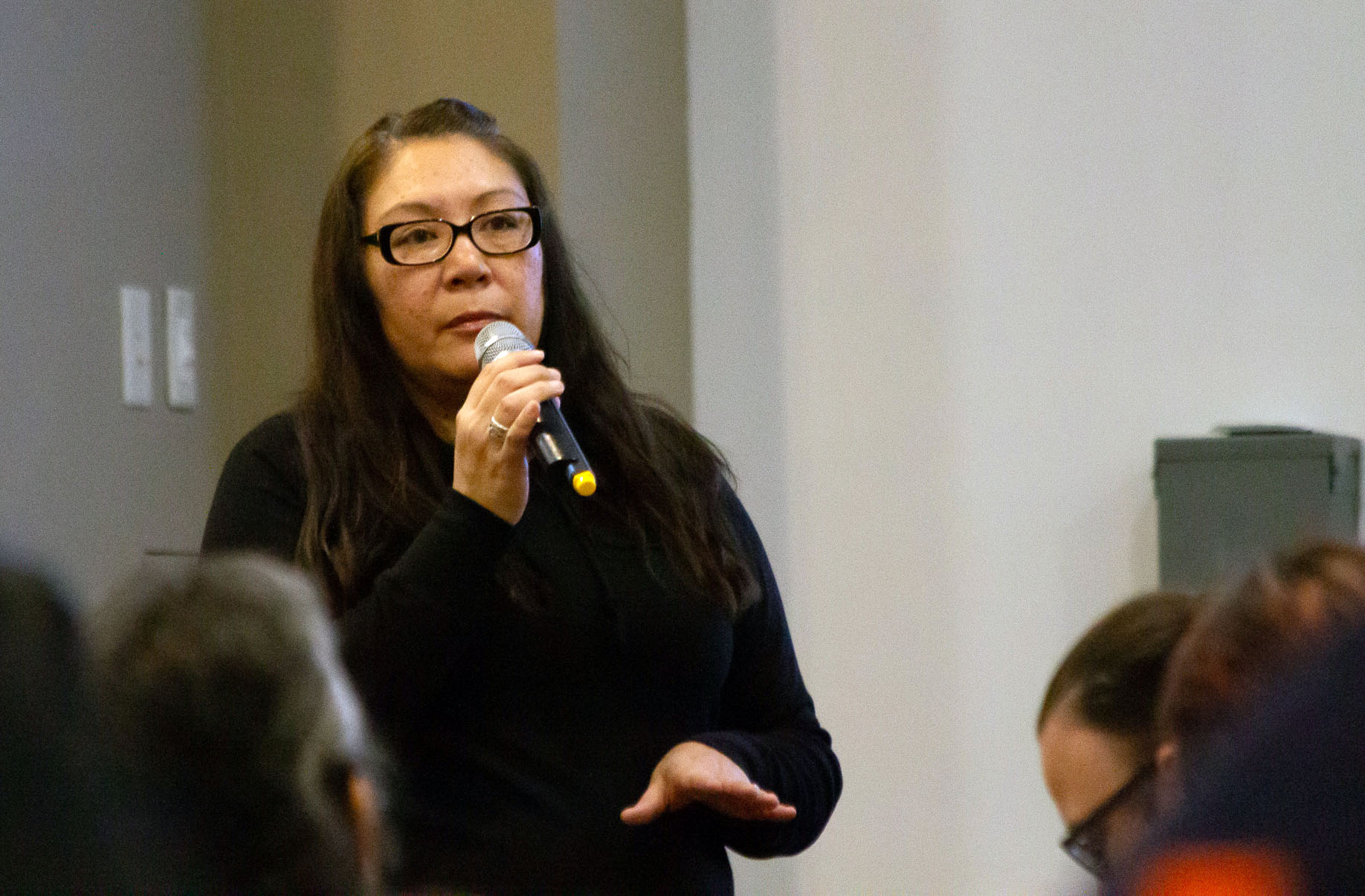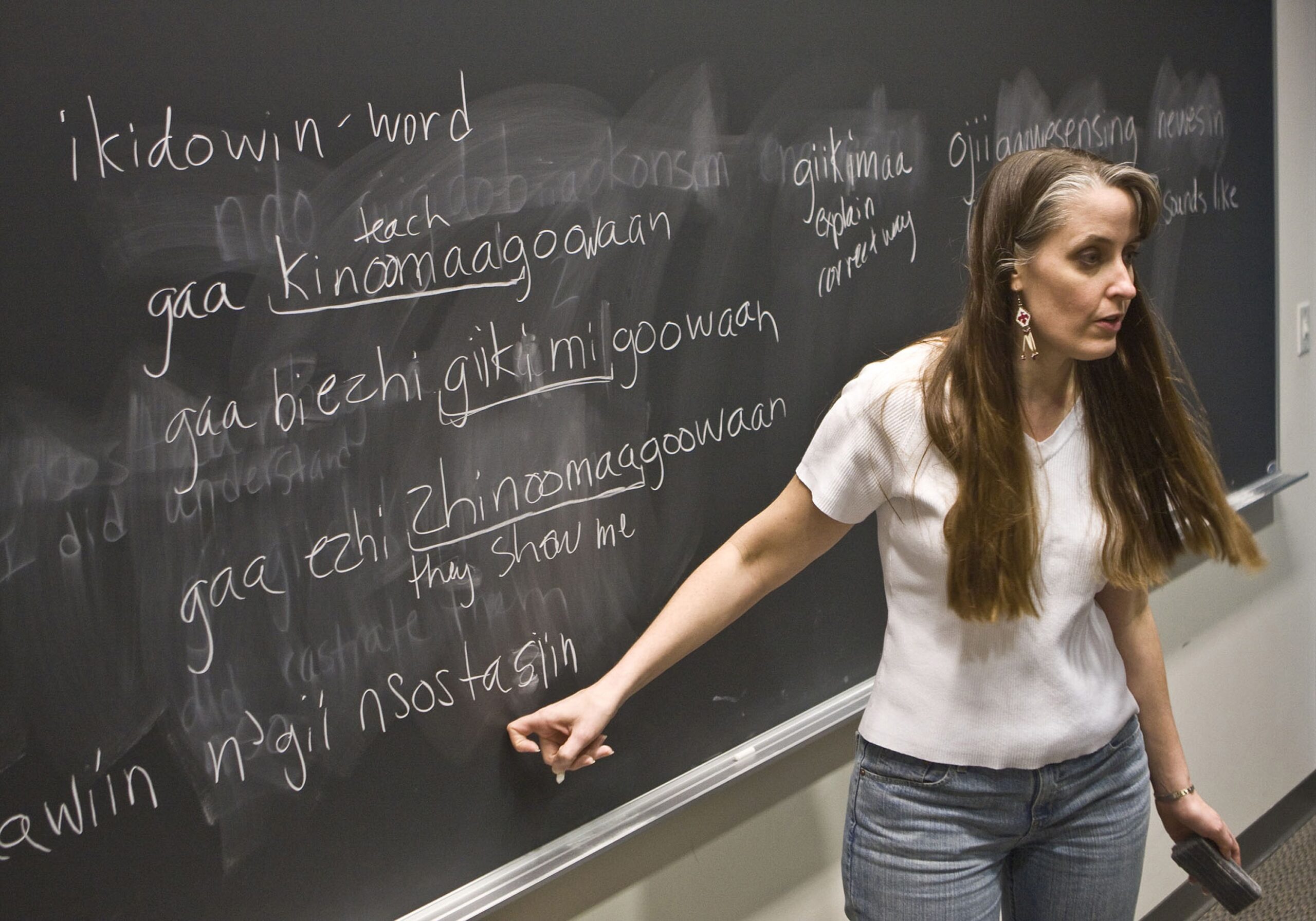Wisconsin tribes and GOP lawmakers urged a state Senate committee to support passage of a package of bills that largely focus on expanding tribal representation or rights in schools.
They include allowing students to wear tribal regalia at graduation ceremonies and allowing tribes to decide who’s qualified for a lifetime license to teach American Indian languages.
The Senate Committee on Government Operations held a public hearing Wednesday on a package of five bills concerning Wisconsin tribes. They were recommended by the Joint Legislative Council’s state-tribal relations committee.
Republican Rep. Jeff Mursau, chair of the state-tribal relations committee, and the committee’s vice chair, Republican Sen. Mary Felzkowski, said the bills represent a common sense approach when considering legislation that affects Wisconsin tribes and their members.
“We always are working on kind of a cleanup on some of the bills that we’ve had over the years,” Mursau said.
Four of the five bills were passed by the Assembly last year, but did not advance in the Senate. The state Department of Public Instruction registered support for all bills pertaining to tribes and schools. The committee will vote Thursday by paper ballot on each proposal.

Bill allows students to wear tribal regalia in school ceremonies
News with a little more humanity
WPR’s “Wisconsin Today” newsletter keeps you connected to the state you love without feeling overwhelmed. No paywall. No agenda. No corporate filter.
The state-tribal relations committee previously brought forth legislation that says school boards or charter schools can’t bar students of federally recognized tribes from wearing tribal regalia at graduation ceremonies or school-sponsored events.
Menominee Indian Tribe Chairman Joey Awonohopay said the legislation is important for allowing Native students to wear traditional regalia, such as eagle feathers, beadwork and quillwork.
“While recognizing the importance of an educational achievement, they are also honoring their families, community and their identity,” Awonohopay said. “Receiving an eagle feather or beadwork or applique or quillwork can be as significant as receiving that diploma itself.”
Ryan Greendeer, government relations officer for the Ho-Chunk Nation, said tribal regalia holds religious value for tribal members. He added that federal law prevented Indian religious practices until the Indian Religious Freedom Act of 1978.
“Fairly recently even, students were warned or denied entry [for wearing regalia] to milestone events such as graduation,” Greendeer said.
Both Greendeer and Awonohopay say incidents still occur in Wisconsin that bar students from wearing tribal regalia despite constitutional protections of their rights to free speech and religious expression. Last year, state schools Superintendent Jill Underly highlighted state legal protections for students in a letter, urging school districts to deepen their relationships with tribal communities.
“Your policies can go a long way in recognizing the cultural and religious significance these specific items have to the students of these sovereign nations,” Underly wrote.

Bill seeks changes to lifetime licenses to teach American Indian languages
Another bill deals with instruction of American Indian languages.
Under current law, anyone with a provisional teaching license can receive a lifetime license after completing six semesters of instructional experience. A bill would give Wisconsin’s federally recognized tribes the option to decide whether an applicant is qualified to receive a lifetime license for teaching the American Indian language.
“Tribes are the best, and they’re the only gauge for tribal language competency,” Greendeer said.
Awonohopay noted some tribes may continue to follow existing regulations, but the legislation removes a one-size-fits-all approach to licensing.
“Tribal languages are complex, tied to place and deeply rooted in cultural knowledge, which requires a consistent and ongoing, multifaceted learning process,” Awonohopay said.
Awonohopay said completing the required amount of teaching experience is not enough to ensure someone is skilled enough to receive a lifetime license to teach American Indian languages.

Bill adds information reported on American Indian children in schools
Another proposal would expand requirements under current law where school districts must submit annual reports to the Department of Public Instruction. Under the bill, school districts must report the numbers, ages and tribal affiliation of American Indian students attending schools. If passed, the changes would take effect in the 2026-2027 school year.
“Knowing where there may be a cluster of Menominee Indian tribal Wisconsin students can help our tribe track graduation rates, plan for future educational needs, such as increasing access to resources, building stronger support networks, etc.,” Awonohopay said.
He also said the proposal could help create and improve relationships with districts and ensure proper funding under Title VI and the Johnson-O’Malley Program, which help address the educational needs of American Indian students.

Bill on Professional Standards Council for Teachers
The Professional Standards Council for Teachers that advises the Department of Public Instruction currently requires one of its members to be licensed by the agency, employed in a tribal school and recommended by a Wisconsin tribe.
A new bill would eliminate a requirement that an employee of a tribal school be licensed by DPI. The agency requested the change since teachers at tribal schools don’t require a DPI license.
“Too often the seat is vacant and there is no representation from a tribal school when it goes unfilled,” Awonohopay said. “Our perspectives are missing from an important conversation that considers issues and determines standards for licensure, which in turn, impacts our teachers and schools.”
He said changing the requirement will ensure tribes have a voice that can speak about standards from the perspective of tribal schools.
Bill pertaining to tribes and vital records
Under current law, state agencies, financial institutions and other entities do not face penalties for copying a certified copy of a vital record. However, Wisconsin tribes are not among them. Felzkowski said that leaves tribes facing a felony charge that could result in a fine of up to $10,000 or three-and-a-half years in prison.
“Tribal members reiterated that their government employees need to retain copies of vital records to establish and verify membership,” Felzkowski said.
The Menominee Indian Tribe’s Awonohopay said the bill ensures tribes have the same rights as other institutions.
“It helps streamline administrative processes, allowing tribal governments to more efficiently carry out their functions and provide essential services,” he said.
Wisconsin Public Radio, © Copyright 2026, Board of Regents of the University of Wisconsin System and Wisconsin Educational Communications Board.






